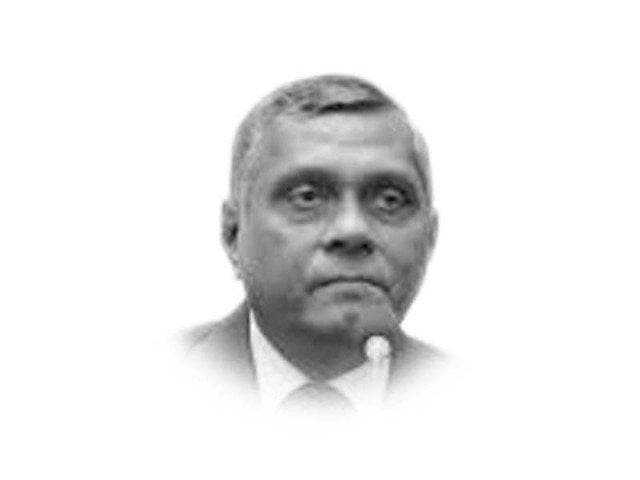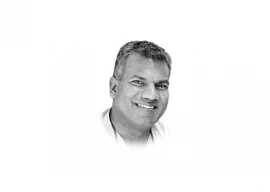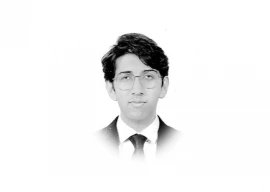
Ignorant and immature state of mind leads to the mismanagement of a crisis whereas if the mind is empowered with analytical approach and critical thinking, it can avert a grave danger. Pakistan’s predicament since its inception in August 1947 is the absence of critical thinking in policy formulation and successful management of crises. Consequently, the outcome is political instability and economic disaster.
What is critical thinking and how does it help better management of crisis? Why are critical thinking and analytical skills non-existent in Pakistani culture and how can a country of 250 million people deal with a prevailing grave crisis if the leadership is imbued with prudence and wisdom?
According to California Critical Thinking Disposition Inventory, there are seven essentials to develop critical thinking in any society. First, truth-seeking which means: do you try to understand how things really are? Second, are you interested in finding out the truth? It means open-mindedness and how receptive are you to new ideas. Third, analyticity — do you try to understand the reasons behind things? Do you act impulsively or do you evaluate the pros and cons of your decisions? Fourth, systematicity — are you systematic in your thinking? Do you break down a complex problem into parts? Fifth, confidence in reasoning — do you always differ with other people? Sixth, how confident are you in your own judgment? Do you have a way to evaluate your own thinking? Seventh, inquisitiveness including maturity of judgment — do you jump to conclusions? Do you try to see things from different perspectives? Do you take other people’s experiences into account?
Analysed in the context of Pakistan, seven features outlined by the California Critical Thinking Disposition Inventory are almost absent which leads to lack of reasoning, questioning, truth seeking and inquisitiveness. Criticism is not acceptable in a society which is still feudal and tribal which leads to close minds and the acceptance of things as they are. It is at the grassroots level that critical thinking along with analytical approach needs to be inculcated in the minds of school-going children so that they have the ability and confidence to question things which according to them are senseless and wrong. But, barring the islands of elite centric educational institutions, critical thinking is not a subject to be taught or discussed. This leaves 95% of Pakistani schools, particularly governed by the state or religious seminaries, where the culture of questioning and reasoning is not to be seen.
Absence of critical thinking in Pakistan leads to major implications.
First, submissive and myopic mindset which is conformist and status quo oriented. As a result, the issues of governance, democracy, religion, culture, exploitation and economy which should have raised critical questions are simply not examined or analysed. If Pakistan is at 144th in Human Development Index, the reason for degeneration of human security is policies which lead to corruption, nepotism, bad governance, absence of rule of law and accountability. When the majority of population lacks the skills to critically and analytically evaluate things, the result is economic and political crisis, myopic mindset and confusion. Absence of the culture of reading which is a fundamental and essential requirement to develop critical thinking further augments Pakistan’s predicament. In 75 years of the history of Pakistan, the country faced numerous crises and in most cases failed in their successful management. When the culture of dissent is not to be allowed to take roots, it means the absence of critical thinking with an ulterior motive to keep majority of population ignorant.
Second, critical thinking is not acceptable in the Pakistani society because mafias and corrupt power hungry privileged classes make sure that their undemocratic and repressive policies are not challenged. And if someone tries to pursue a non-conformist approach against those who since the inception of Pakistan are responsible for depriving people of genuine democracy, good quality of life and essential characteristics of human security, they are brutally suppressed by the segments of ‘deep state’. Under the cover of so-called cultural and religious values, critical thinking is either suppressed or not allowed to grow.
Third, when majority of educational institutions and media follow a conformist approach, one cannot expect critical thinking to take place. Independent and non-conformist minds, which are considered as a challenge by the privileged ‘deep state’, are silenced by acts of coercion and the use of state suppression. There are numerous examples to prove how the absence of critical thinking failed to learn lessons like the disintegration of Pakistan in 1971; derailment of democracy in 1958, 1969, 1977, 1999; ‘Operation Gibraltar’ fiasco; the Kargil war; joining the US-led war on terror; and the recovery of global terrorist Osama bin Laden from his hideout in the garrison city of Abbottabad. The mindset which favours a policy of ‘cover-up’ of national tragedies and blunders also reflects the absence of critical thinking. The culture of suppressing truth by coercing the voices of dissent criticising those who according to them were responsible for causing great harm to the country is another example of how ‘deep state’ functions.
Finally, an unholy alliance composed of privileged elite classes to suppress critical thinking particularly raised from a part of civil society is a reality and reflects their total consonance to curb dissent and truth. Control over the instruments of power including media is the ulterior motive of ‘deep state’ so that those who challenge injustices are silenced. To a large extent, political parties suppress critical thinking in order to ensure family fiefdom’s hold over power.
One can however visualise possibilities of change in Pakistani society because majority of people will not accept suppression of truth and injustices any more. Around 60% of the population of Pakistan is composed of youths and their future is at stake because of failure of governance, corruption and nepotism. They are the ones who in an age of information technology cannot be coerced and will certainly rise against growing injustices, unprecedented price-hike, rising inflation and surging unemployment. Their source of critical thinking is the rise of social media and inability to suppress the truth against prevailing injustices and political suppression.
Absences of an enlightened culture promotes a retrogressive and myopic mindset which negates critical thinking. Indifference and apathy towards dealing with critical issues which has degenerated Pakistan economically, politically and socially will further mitigate hope for a democratic, progressive and egalitarian country.
Published in The Express Tribune, June 27th, 2023.
Like Opinion & Editorial on Facebook, follow @ETOpEd on Twitter to receive all updates on all our daily pieces.




1724152318-0/beyonce-(1)1724152318-0-165x106.webp)
1728213758-0/Tribune-Pic-(2)1728213758-0-165x106.webp)








COMMENTS (1)
Comments are moderated and generally will be posted if they are on-topic and not abusive.
For more information, please see our Comments FAQ